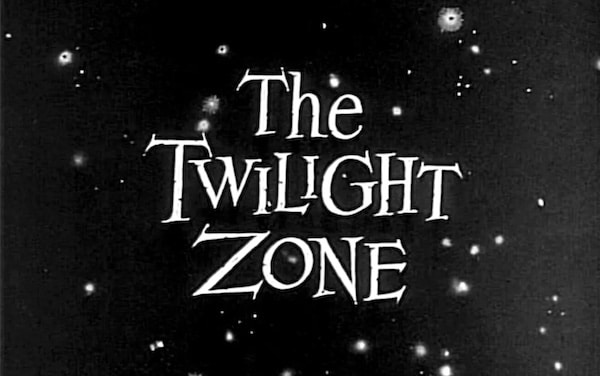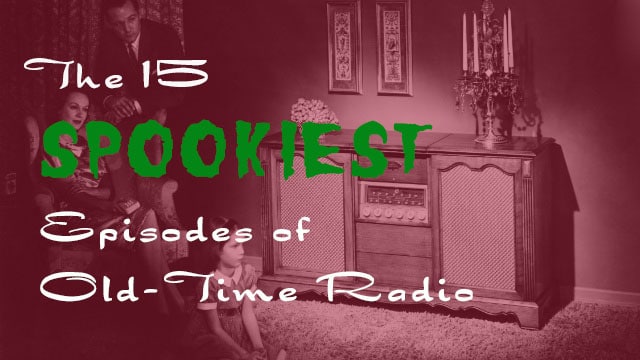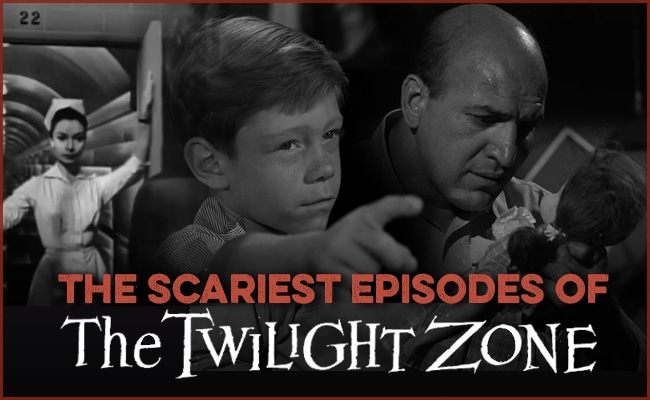
If you have only passing familiarity with The Twilight Zone — maybe only really knowing its iconic opening sequence — you might be forgiven for thinking that the classic television show centered on scary themes. In reality, however, while the show certainly had a dark atmosphere and included plenty of suspense, creepiness, and dread, it fell more into the genres of science fiction and fantasy than horror. It was layered more with incisive insights into the dynamics of the individual mind and the group collective than outright frights. The monsters of the show lived in people’s heads; its chills were of the existential variety.
Nevertheless, there are some episodes of The Twilight Zone that land on the more traditionally frightening side of things. Not on the level of modern horror flicks, mind you, but as compared to the rest of the series. Of these episodes, here are the five scariest:
“Living Doll”
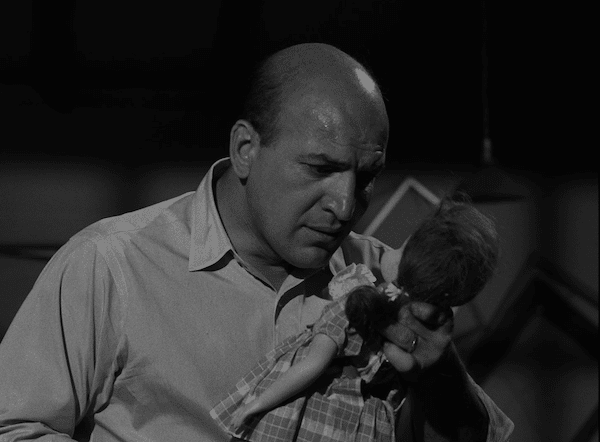
What is it that’s so dang creepy about dolls? It’s not just the clearly malevolent-looking variety, à la Chucky. Our kids are terrified by an American Girl doll — an American Girl doll! — that was handed down from an aunt, convinced that it’s cursed.
But Kirsten has nothing on Talky Tina in this episode of The Twilight Zone. Talky Tina is given to young Christie by her mother, and Christie’s stepfather Erich, who’s already antagonistic to the girl because he can’t have children of his own, takes an immediate dislike to the doll. And why wouldn’t he? When wound, the doll usually says, “My name is Talky Tina, and I love you very much.” But to Erich, she says things like, “My name is Talky Tina, and I’m beginning to hate you.” As Erich tries to dispose of the doll, her rhetoric, and intent, turn increasingly menacing; you’ll be forever haunted by her voice intoning, “My name is Talky Tina, and I’m going to kill you.”
“Twenty Two”

Hit with a case of nervous fatigue, high-strung professional dancer Liz Powell has landed herself in the hospital. But a recurring nightmare is hindering her recuperation; each night in a dream, Liz follows a nurse down to the hospital’s morgue — room 22 — and the nurse eerily says, “Room for one more, honey.” Liz is convinced the dream is real, but no one believes her. The true meaning of the dream is revealed at the end, in one of the show’s best twists.
“The Dummy”

Another doll episode, this time featuring that King of Creepiness: a ventriloquist dummy. Ventriloquist Jerry Etherson uses Willy the dummy in his show, and swears that Willy is alive, not to mention a total jerk. But has the dummy really come to life, or are Jerry’s convictions just delusions born from his heavy drinking or what doctors have diagnosed as schizophrenia? The dummy’s maniacal laughter is hard to take, but wait for the wonderfully disturbing twist at the episode’s end.
“The Shelter”
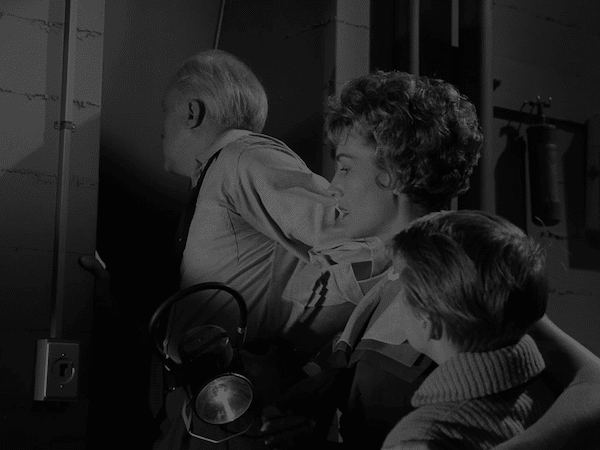
While serving in WWII, The Twilight Zone’s creator, Rod Serling, saw firsthand the animal barbarity that lurks just underneath the veneer of civilization. He regularly returned to this theme in the show, most memorably in “The Monsters Are Due on Maple Street.” “The Shelter” shares some similarities with that episode, but perhaps because it’s one of the few episodes that doesn’t include any supernatural or sci-fi elements, and instead explores an all-too-real scenario, it’s a little scarier.
A group of neighbors and friends have gathered to celebrate the birthday of Bill Stockton. They’re the face of congeniality and good-naturedly rib Bill about building a bomb shelter. But when the Civil Defense issues a warning that a nuclear attack may be imminent, they suddenly all want in, though the shelter and its supplies are only designed for the three people in Bill’s family. The psychologically tense episode explores a fraught but typically ignored hypothetical: what do you do if you’re prepared for a disaster, but your loved ones are not? For the folks in the Twilight Zone, it turns out they’re not only ill-prepared for a crisis, but for its unexpected fallout.
“It’s a Good Life”

Born with godlike powers, including the ability to read minds and murder living things simply by wishing it so, six-year-old Anthony Fremont has isolated his hometown from the outside world and keeps its inhabitants under his strict control. Anthony requires those around him to only think and say happy things; anyone who runs afoul of his dictates and temper is killed and “sent into the cornfield.” The townspeople and his own parents submit to Anthony’s reign of terror, walking on eggshells, doing whatever they must to appease him, and constantly affirming that whatever he does is good, “real good.” The viewer can’t help but feel frustrated that it seems no one ever disciplined Anthony when he was younger, and no one now has the courage to end his malicious rule. “It’s a Good Life” is tense, unsettling, and hands down the scariest episode of The Twilight Zone.
To learn what made The Twilight Zone such a great show and why it still holds up today, more than sixty years after it premiered, be sure to listen to this episode of the podcast:



